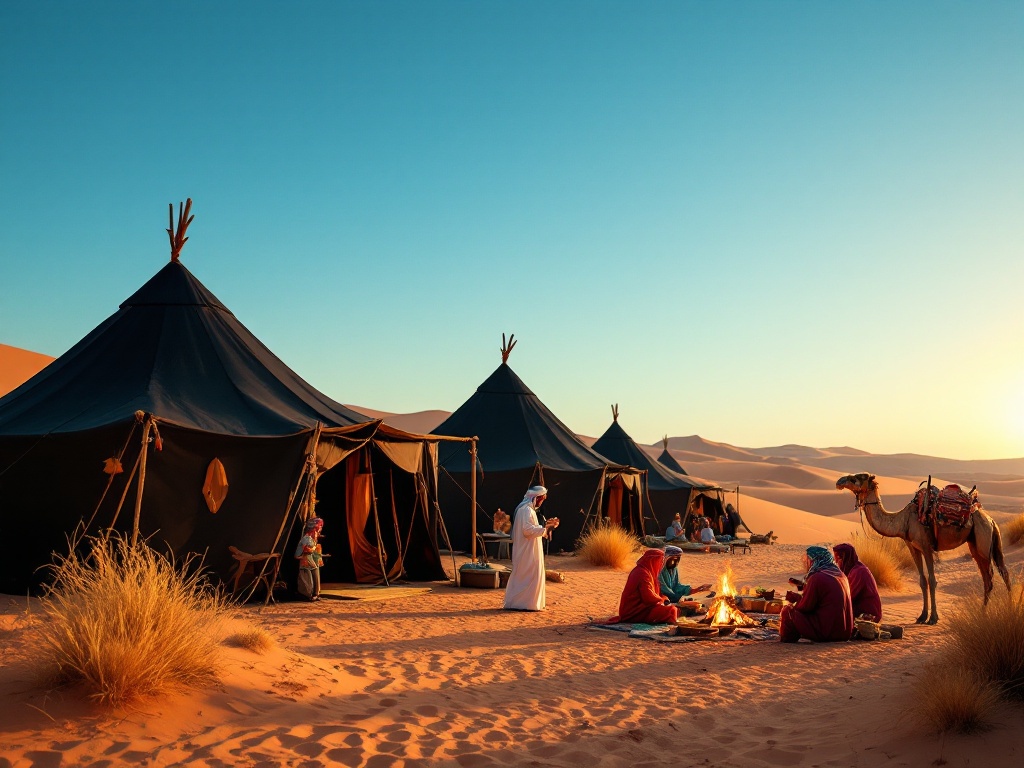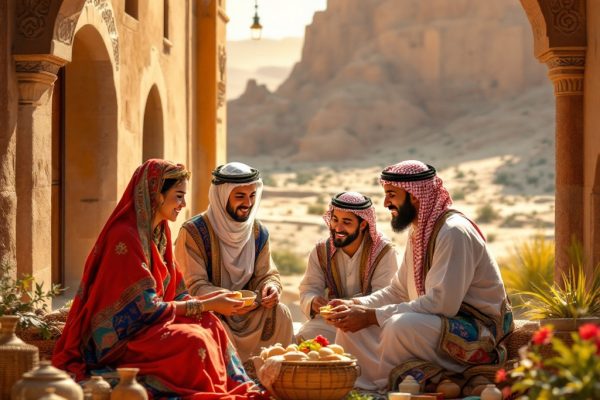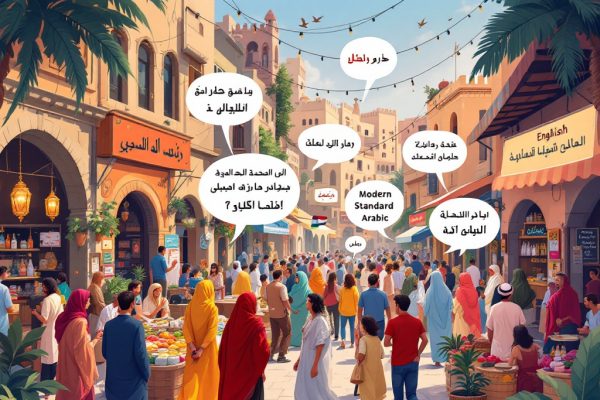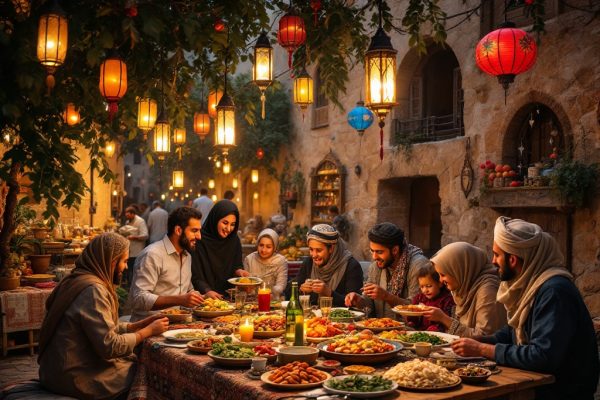Bedouins in Jordan: Everything You Must Know About Them
Journey into the heart of Jordan’s deserts and discover the captivating world of the Bedouins. These nomadic Arabs, with a rich history intertwined with Jordan’s heritage, offer a unique cultural experience. Explore their iconic black goat-hair tents, learn about their traditions of hospitality, and witness their adaptation to modern life. From camel riding and traditional meals to captivating stories under the desert stars, immerse yourself in the Bedouin way of life. Discover a culture that thrives on resilience, preserves its heritage, and welcomes you to share in its magic. Begin your adventure now and experience Jordan’s Bedouin culture firsthand.
Important information

- Bedouins are nomadic Arab tribes with a rich history intertwined with Jordan’s desert landscape and culture. Their traditions emphasize kinship, hospitality, and adaptation to harsh environments.
- Traditionally nomadic herders, Bedouins raise camels, goats, and sheep, living in distinctive black goat-hair tents. While some maintain this lifestyle, many now blend traditional practices with modern occupations, particularly in tourism.
- Hospitality is central to Bedouin culture. They generously welcome guests, sharing food, shelter, and stories. Traditional coffee and tea ceremonies are important social rituals.
- Bedouin culture is adapting to modern society while preserving core values. Storytelling, music, and traditional crafts help maintain their unique identity. The Jordanian government actively supports the preservation and integration of Bedouin culture.
- Visitors can experience Bedouin culture through desert tours, campsite visits, and interactions with local communities. These activities support the Bedouin economy and offer valuable insights into their traditions.
Who Are the Bedouins of Jordan?
Jordan’s deserts have been home to Bedouin tribes for centuries. These nomadic Arabs possess a vibrant culture deeply intertwined with their desert existence. Many Jordanians trace their ancestry back to these tribes, and you’ll often encounter Bedouins along the Desert Highway.
The History and Culture of Bedouins in Jordan
Jordanian Bedouin history is deeply intertwined with the story of the Arabian Peninsula. For centuries, Bedouin tribes roamed these lands as nomadic herders, their culture rooted in kinship, hospitality, and the ability to thrive in the harsh desert environment. These tribes played a significant role in regional politics and trade, engaging in both conflict and cooperation with settled communities. Today, Jordan’s Bedouin culture is changing, adapting to modern society while holding on to its fundamental values. This rich heritage is vital to Jordan, contributing to tourism and cultural preservation efforts that protect their unique way of life.
Bedouin Tribes and Their Role in Jordanian Culture
Bedouin tribes are integral to Jordanian culture, their traditions, like storytelling and hospitality, forming its core. These iconic groups reside in distinctive black goat-hair tents known as beit al-sha’ar, reflecting their nomadic lifestyle. Renowned for their hospitality, the Bedouin offer guests food, shelter, and protection—a generosity central to their culture and Jordan’s tourism.
Visitors can experience this culture firsthand through activities such as:
- riding camels,
- savoring traditional meals,
- listening to captivating stories that recount Bedouin history and traditions.
Nomadic Lifestyle and Traditions
Bedouins, traditionally nomadic herders, raise camels, goats, and sheep, following seasonal migrations in search of pasture and water. Their portable homes, woven black tents made of goat hair, reflect this nomadic lifestyle. However, many Bedouins now live a blended life, maintaining their traditional tents while also working in tourism and other settled occupations. This shift also affects their diet, as access to modern foods supplements their historically simple fare.
Tribal Justice System and Social Order
Jordanian Bedouin tribes uphold a unique, traditional justice system separate from the national legal structure. This system effectively resolves conflicts and maintains peace within their communities.
At the heart of Bedouin culture are community, equality, and strong family bonds, which foster a close-knit society and contribute to tribal stability.
The Unique Bedouin Lifestyle
The Bedouin people, known for their iconic black goat-hair tents, have a rich history rooted in nomadic pastoralism. Camels, goats, and sheep are integral to their way of life, providing sustenance and valuable resources for trade. This deep connection to their livestock has enabled Bedouin communities to thrive for centuries. However, the Bedouin world is experiencing a period of significant change as many adapt to the pressures of modern society. Increasing numbers are migrating to urban areas in search of new employment opportunities, leading to a unique blend of ancient traditions and modern influences. This delicate balance allows them to navigate a changing world, preserving their cultural heritage while embracing new possibilities. The Bedouin story is one of remarkable resilience and adaptation.
Traditional Tent Living: Black Goat-Hair Tents
Bedouin tribes live in the desert in remarkable black tents woven from goat hair. These portable structures offer crucial protection from the harsh sun and wind. They are perfectly suited to the desert environment. Often adorned with intricate decorative patterns created using natural dyes, these adaptable dwellings serve as communal living spaces where families and guests gather to escape the desert heat.
Animal Husbandry: Camels, Goats, and Sheep
Camels, goats, and sheep are essential to Bedouin life, ensuring survival in the harsh desert. Camels are vital, providing transportation, milk, and wool. Goats and sheep offer meat and milk, while their hides are used for clothing and shelter. These animals are deeply ingrained in Bedouin culture, playing a central role in their traditions and customs.
Modernization and Hybrid Lifestyle
Jordanian Bedouins are adapting their traditions to modern life. Some maintain their nomadic lifestyle, while others have settled in urban areas, working in sectors like tourism. This transition offers improved access to essential services such as healthcare and education.
Yet, they proudly preserve their cultural heritage through storytelling, music, and traditional crafts. This evolution represents a vibrant blend of ancient customs and contemporary living.
Bedouin Hospitality and Cultural Practices
Hospitality is deeply ingrained in Bedouin culture, reflecting profound respect and generosity. Guests are warmly greeted and offered traditional refreshments, such as coffee or tea served with dates and sweets. These customs reinforce social ties and uphold the Bedouin’s honorable reputation.
Celebrations feature storytelling, music, and dance, preserving history and fostering a sense of community. Traditional crafts, including weaving, pottery, and jewelry making, are also vital, with skills passed down through generations. This transmission of knowledge helps the Bedouin maintain their unique identity, a particularly crucial endeavor in today’s world.
Significance of Hospitality in Bedouin Culture
Bedouin culture places hospitality at its core, weaving it into the very fabric of their identity. Generosity and a strong sense of community are paramount values. Hosts consider welcoming guests a sacred duty, taking immense pride in their role. Food and drink are offered freely, even in times of scarcity, as a way to strengthen social bonds and honor relationships. These connections are vital for survival in the harsh desert environment, reinforcing the Bedouin’s deserved reputation for honor.
Bedouin Tea and Coffee Traditions
Sweet, black tea, served in delicate glasses, is a cherished Bedouin tradition. However, coffee infused with cardamom holds even deeper cultural meaning. Offered as a gesture of respect and welcome, it plays a vital role in hospitality and ceremonies. The preparation of both beverages over a crackling campfire strengthens communal bonds and time-honored traditions.
Bedouin Food: From Zarb to Modern Diets
Bedouin cuisine traditionally relies on simple ingredients like bread, yogurt, dates, and dried fruits. Meat, often cooked in goat fat, remains a dietary staple. A cherished tradition, zarb, involves slow-cooking meat and vegetables underground with hot coals, resulting in incredibly flavorful dishes. Modern influences have expanded culinary options, introducing diverse ingredients and contemporary cooking methods. This creates a vibrant culinary landscape that blends time-honored traditions with modern tastes.
Experiencing Bedouin Culture in Jordan
Experience the vibrant Bedouin culture in the heart of Jordan. Explore breathtaking campsites like Wadi Rum and immerse yourself in time-honored traditions. Discover their captivating stories, distinctive clothing, and mesmerizing music. For the adventurous, camel riding offers a unique perspective of the desert landscape. As night falls, witness the breathtaking beauty of the vast, starlit sky. Renowned for their hospitality, the Bedouin welcome you to partake in traditional coffee ceremonies. Savor culinary delights like zarb, a slow-cooked feast of tender meat and vegetables, a true taste of Bedouin cuisine.
Visiting Bedouin Campsites: A Cultural Immersion
Experience the magic of Bedouin culture with a visit to their desert campsites. These camps offer a unique insight into their traditional way of life and deep connection with nature. Comfortable guest tents provide a relaxing stay, while displays of locally made crafts offer perfect souvenir opportunities. Communal areas encourage interaction with the Bedouin people, but an overnight stay is truly recommended to experience the richness of their culture. Enjoy incredible hospitality, savor traditional Bedouin cuisine, and discover their fascinating customs. As night falls, witness the unforgettable magic of the desert sky.
Traditional Clothing and Accessories
Bedouin clothing is perfectly adapted to desert living, providing both comfort and essential protection. Loose-fitting garments promote air circulation, offering coolness in the scorching heat while shielding skin from the intense sun. Women’s beautifully embroidered dresses are intricate expressions of artistry. Men typically wear a thawb, a long flowing robe, and a keffiyeh, their traditional headdress. Accessories, such as silver jewelry and kohl eyeliner, are key, serving not only as adornments but also as significant cultural markers. Kohl, for instance, both enhances the eyes and protects them from the sun’s glare.
Traditional Bedouin Clothing
The Bedouin people’s attire reflects both practicality and cultural richness, deeply intertwined with their desert lifestyle.
- Loose garments: Designed for comfort in extreme heat, allowing air circulation and protecting skin from the sun.
- Women’s dresses: Intricately embroidered, showcasing artistic skill and cultural expression.
Key Accessories and their Significance
Beyond clothing, accessories play a vital role in Bedouin culture, adding both beauty and practical value.
- Thawb: A long, flowing robe traditionally worn by men.
- Keffiyeh: The traditional Bedouin headdress.
- Silver jewelry and kohl: Serve as adornments and significant cultural markers, with kohl also offering eye protection from the sun.
Bedouin Storytelling and Cultural Activities
Storytelling is essential to Bedouin culture, preserving their history and conveying their values across generations. These oral traditions weave tales of courage, romance, and wisdom. Beyond storytelling, music, dance, and poetry also play vital roles in celebrating their rich heritage and expressing shared values. For instance, the “Dabke,” a traditional dance performed at weddings and festivals, embodies this cultural expression. Similarly, poetry and music, frequently shared at social gatherings, strengthen community ties and transmit cultural knowledge.
The Impact of Bedouins on Jordanian Society
Bedouins are integral to Jordan’s heritage and play a significant role in its tourism industry. They guide desert tours, share traditional meals, and entertain visitors with captivating stories. The Jordanian government recognizes their valuable contribution to the nation’s cultural identity.
Bedouins as the Backbone of Jordan
Bedouins are integral to Jordan, enriching its cultural heritage with their deep-rooted desert traditions. These customs form a cornerstone of Jordanian identity, playing a vital role in the nation’s tourism sector by showcasing its diverse heritage. The Jordanian government recognizes the Bedouins’ historical and ongoing contributions to the country.
Contributions to Tourism and Cultural Heritage
Experience the vibrant Bedouin culture of Jordan by sharing stories and enjoying authentic meals with local communities. Explore the stunning desert landscape on guided tours, directly supporting the Bedouin people’s economic well-being and preserving their rich heritage. These tours offer invaluable insights into Bedouin hospitality, enriching Jordan’s tourism. Eco-tourism initiatives further promote sustainable development and strengthen cultural preservation.
Recognition by the Jordanian Government
Jordan’s government recognizes the vital role of Bedouin culture in the nation’s identity and is committed to its preservation. While safeguarding Bedouin traditions, the government also strives to integrate them into modern society. This delicate balancing act involves supporting nomadic lifestyles while simultaneously ensuring access to education and healthcare. Furthermore, by promoting Bedouin art and music, Jordan showcases the rich tapestry of their heritage.












